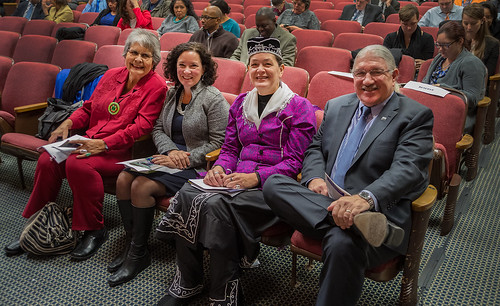

Legendary Native American Indian activist, educator and former government official Ada Deer (Menominee) delivered a charge to those attending USDA’s Native American Heritage Month observance here in Washington last week. “Be activists to achieve change,” she said. “We all pay our rent on the planet. How are you paying your rent?”
A former head of the Bureau of Indian Affairs, she recently retired as director of the American Indian Studies Department and Director of the School of Social Work at the University of Wisconsin-Madison. In my introduction, I noted that Ms. Deer’s life is a tribute to tribal sovereignty and self-determination. She is a role model to all Native Americans, but especially to Native American women. Not surprisingly, Ms. Deer spoke passionately about the role of Tribal colleges and universities. This year marks the 20th anniversary of their recognition by Congress as land grant institutions. These colleges and universities are central to the Tribes. They mark a firm move away from the old boarding school model and provide life-long learning opportunities in Tribal communities. “Education,” said Ms. Deer, “empowers people to enact positive change.”
USDA helps to empower the Land Grant Tribal Colleges and Universities. Congress has provided USDA with the ability to provide much-needed funding to the schools through programs in the National Institute of Food and Agriculture. The schools compete for other funding through USDA research and grant programs, and most of their infrastructure was the result of Rural Development Community Facilities funding.
Here at USDA we continue to work to energize and empower members of all tribes. Working with USDA Native leaders such as Rural Development’s Deputy Under Secretary Patrice Kunesh (Standing Rock Lakota) and the Forest Service’s Deputy Under Secretary Butch Blazer (Mescalero Apache), we are attempting not only to provide Native Americans with their rightful share of program support, but also to collaborate with them and consult with them when decisions are being made.
Learn more about the observance of Native American Heritage Month at USDA.
